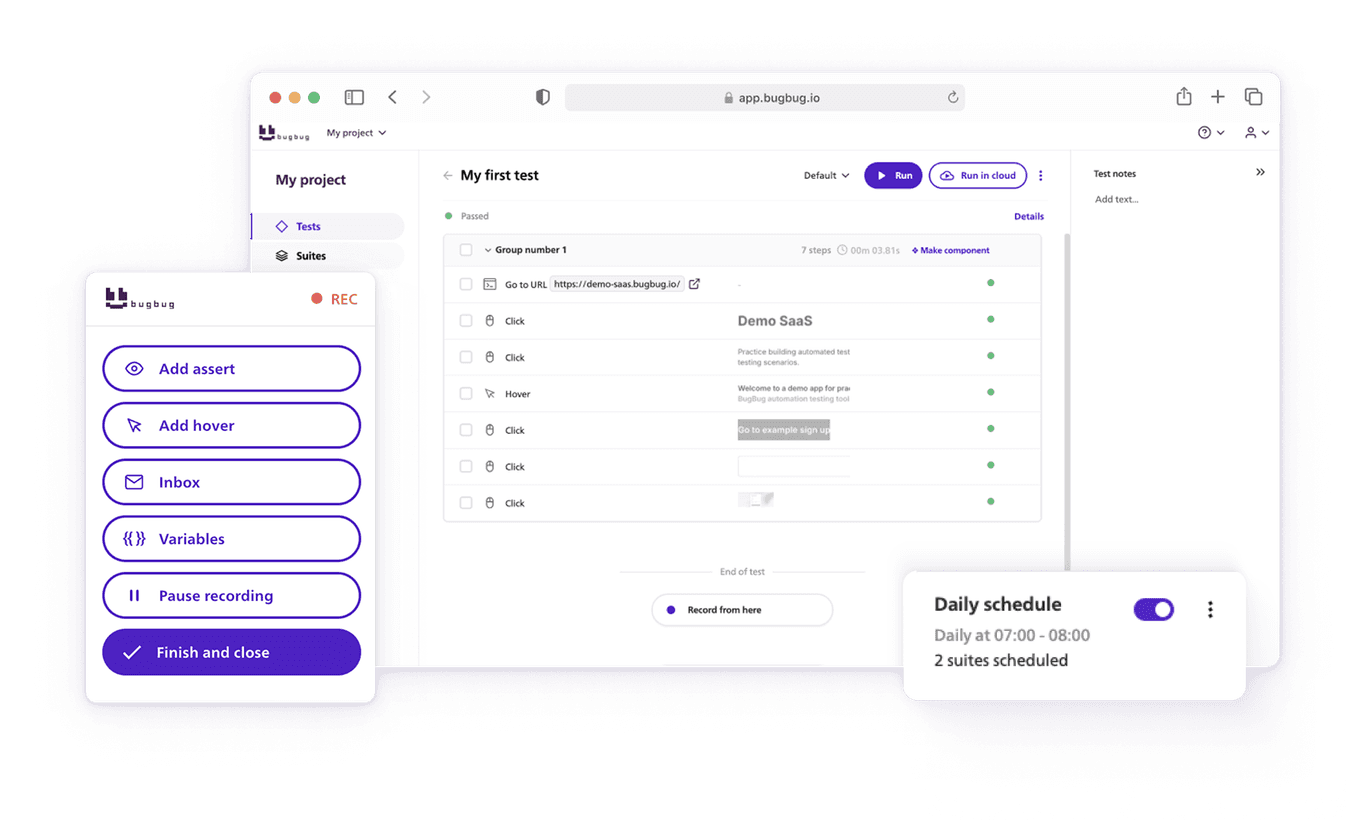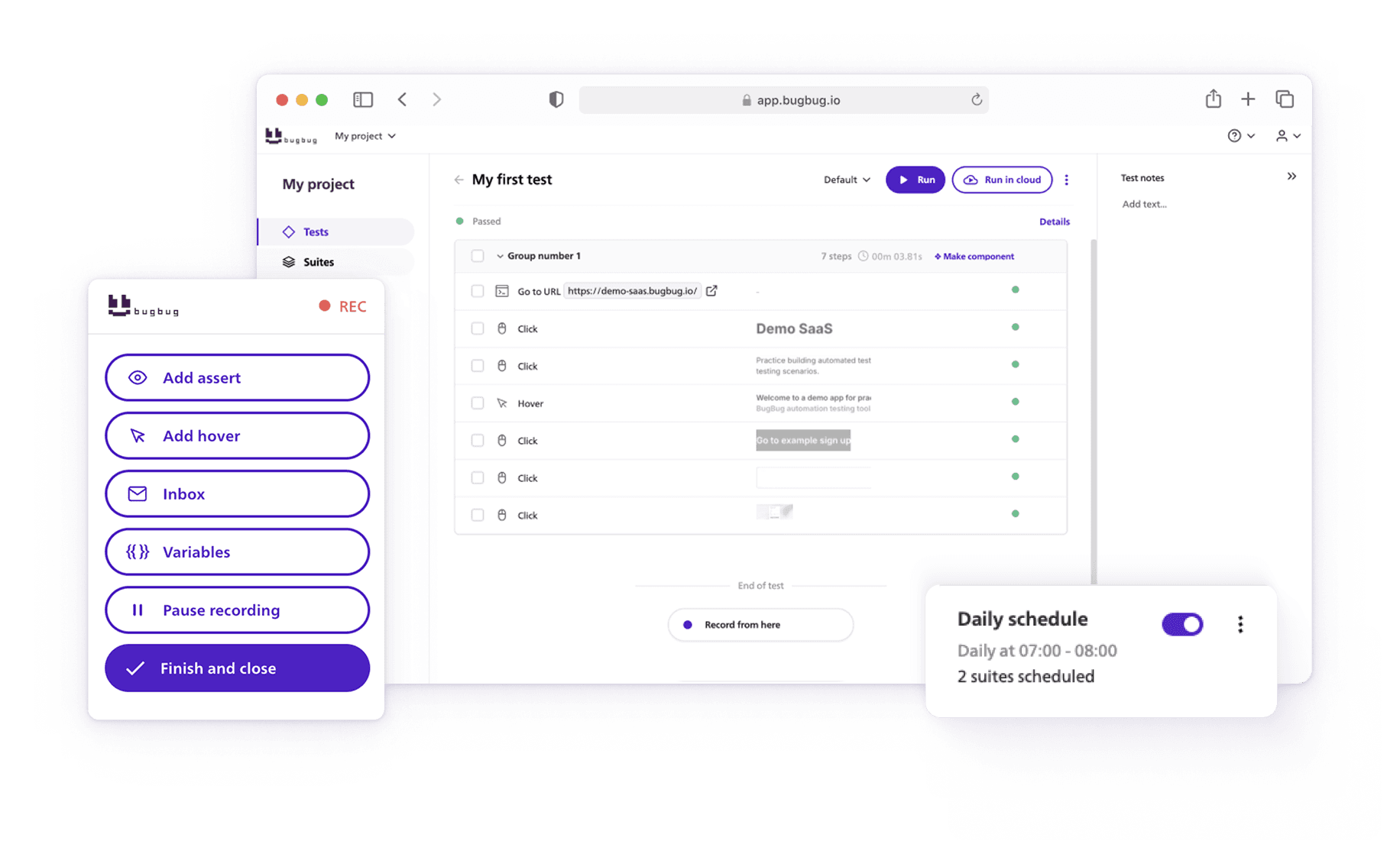When it comes to automating web applications, you're probably thinking of using a free and open-source tool like Selenium. Selenium automates browser interactions, making it a popular choice for browser testing and cross-platform testing. It's a free tool that's completely free to download, allowing users to create and execute selenium scripts for browser automation.
The record and playback feature and various language bindings make it a versatile open-source automation tool.
However, while Selenium may be free, there are hidden costs to consider.
Despite being ready to use and available for Linux and other platforms, the real expenses lie in the infrastructure, script maintenance, and managing the testing across multiple environments.
Understanding these hidden costs is crucial for leveraging Selenium efficiently in your approach to test automation.
🎯 TL;DR - Is Selenium Free?
While Selenium is free, these hidden costs can add up, impacting the overall budget for automation testing.
- Infrastructure: Costs for servers, cloud services, and environment setup.
- Development: Salaries for skilled testers, script maintenance, and custom frameworks.
- Training: Time and money spent on training and overcoming the learning curve.
- Debugging: Resources for troubleshooting test failures.
- Management: Additional tools for test management and reporting.
- Miscellaneous: Advanced features, data management, and ongoing updates.
Read the whole article to learn more about the real cost of using Selenium.
Check also
What is Selenium?
Selenium is a widely-used open-source framework designed for automating web browser interactions. It provides a suite of tools and libraries that enable developers and testers to create scripts for automating web-based applications, making it an essential part of software testing in agile environments.
Key Components and Tools of Selenium:
- Selenium WebDriver: The core component of Selenium, WebDriver allows direct control over the web browsers, facilitating the creation of robust and reliable test scripts. It supports multiple browsers like Chrome, Firefox, Safari, and Edge, ensuring cross-browser compatibility.
- Selenium IDE: This integrated development environment is a Firefox and Chrome extension that provides an easy-to-use interface for recording and playing back tests. It's a great starting point for beginners in test automation.
- Selenium Grid: Selenium Grid enables the execution of Selenium test scripts on multiple machines simultaneously, leveraging parallel execution to speed up the testing process. This tool is particularly useful for running large test suites across various browser and OS combinations.
Automate your tests for free
Test easier than ever with BugBug test recorder. Faster than coding. Free forever.
Sign up for free
Usage and Applications
- Automation: Selenium is primarily used for automating web applications for testing purposes, but it can also be used for automating repetitive web-based administrative tasks.
- Script Writing: Testers can write scripts in various programming languages such as Java, C#, Python, Ruby, and JavaScript to create complex and comprehensive test cases.
- UI Testing: Selenium is highly effective in UI testing, allowing QA teams to verify that web applications function correctly from the user's perspective.
- End-to-End Testing: Selenium supports end-to-end testing by automating interactions from the front-end UI down to the back-end services.
Advantages of Selenium
- Open-Source: Being an open-source tool, Selenium offers a cost-effective solution for test automation, supported by a large community of developers and testers.
- Flexibility: Selenium's ability to support multiple programming languages and frameworks makes it a versatile tool for various testing needs.
- Integration with Other Tools: Selenium integrates well with other test tools and frameworks, enhancing its capabilities in test management and reporting.
Practical Scenarios
- QA Teams: Quality assurance teams use Selenium to ensure web applications meet the required standards and perform correctly across different web browsers and devices.
- Test Automation in Agile: In agile development environments, Selenium helps in maintaining the pace of continuous integration and continuous delivery (CI/CD) by automating regression tests and reducing manual testing efforts.
- Cross-Browser Testing: Selenium's support for different web browsers makes it an ideal tool for cross-browser testing, ensuring the application's compatibility across multiple platforms.
In conclusion, Selenium stands out as a powerful and flexible automation tool for web browser interactions. It is a critical asset for testers and QA teams aiming to improve the efficiency and effectiveness of their software testing processes.
💡 Check also how to handle StaleElementReferenceException in Selenium.
Automate your tests for free
Test easier than ever with BugBug test recorder. Faster than coding. Free forever.
Sign up for free
Is Selenium Free? How Much Does Selenium Cost?
When it comes to software development, one question you might be asking is: How much does Selenium cost? The good news is that Selenium is free.
This popular open source automation tool is available for download at no cost, making it an attractive option for those looking to automate web testing and streamline their testing processes.
With Selenium WebDriver, you can create robust test scripts that automate interactions with web browsers, ensuring your web application performs as expected across different platforms.
Hidden Costs of Using Selenium
However, while Selenium itself is free, there are potential hidden costs associated with its use.
Although you don’t have to pay for the tool itself, the real cost of Selenium comes from the surrounding infrastructure and resources needed to implement it effectively.
For instance, automated testing with Selenium requires test data, test scripts, and often a custom framework to manage and execute your test cases.
Additionally, you may need to invest in cross-browser testing infrastructure, such as using Selenium Grid to run tests on multiple browsers and operating systems simultaneously.
💡 TIP
Another aspect to consider is the cost of development and maintenance. Writing and maintaining Selenium test scripts can be time-consuming and requires skilled testers and developers.
These professionals need to be proficient in programming languages supported by Selenium, such as Java, Python, or C#. Moreover, as your web application evolves, your test scripts will need regular updates to keep pace with changes in the UI or functionality. This ongoing maintenance can add up in terms of both time and resources.
Training is another hidden cost. While Selenium is free, ensuring your team is capable of using it efficiently often involves training sessions, which can be both time-consuming and costly. Additionally, integrating Selenium with other software tools and managing the entire testing platform can require significant effort and expertise.
How Much Does Selenium Cost? Final Thoughts
Furthermore, while there are many open-source tools available for free, using them in conjunction with Selenium, like Apache for logging or TestNG for test management, might also come with their own set of complexities and hidden costs.
In contrast, some organizations opt for paid tools that offer more integrated solutions, potentially reducing some of these overheads.
Automate your tests for free
Test easier than ever with BugBug test recorder. Faster than coding. Free forever.
Sign up for free
In conclusion, while Selenium costs nothing to download and install, and it's a powerful tool for web automation testing, the total cost of ownership includes several hidden costs. These include infrastructure setup, development and maintenance of test scripts, training, and integration efforts.
Weighing these factors is crucial when deciding whether Selenium is the right choice for your testing needs or if an alternative to Selenium might be more cost-effective in the long run.
Happy (automated) testing!



